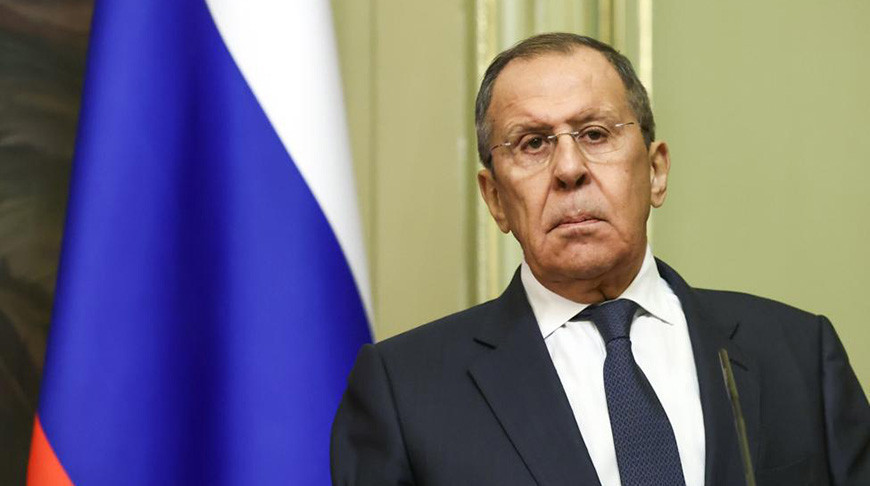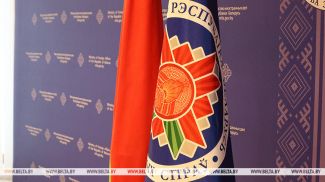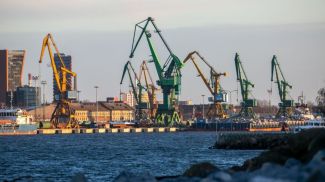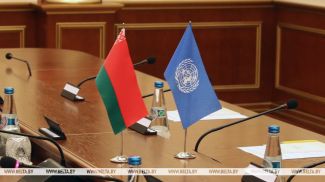
MINSK, 11 November (BelTA) – Work on the Eurasian Charter of Diversity and Multipolarity for the 21st century has commenced, Russian Foreign Minister Sergey Lavrov said at a meeting of the United Russia General Council Commission on International Cooperation, TASS reports.
The Russian foreign minister anticipates that the charter will be completed by the next annual Minsk Security Conference. "By the next [Minsk] conference - this event will be held annually - we will strive to develop the Eurasian Charter of Diversity and Multipolarity for the 21st century," he noted. "This is a strategic document that will encompass all the proposals put forward during the discussions at the Minsk Conference and other forums," Russia’s top diplomat said. Lavrov also touched on the topic of NATO's expanding presence in Eurasia and the countries of the Asia-Pacific region.
"In recent years, especially after the coup in Ukraine, NATO has been doing exactly the opposite: expanding, seeking a dominant role not only in the west of our continent, but throughout its entirety, stating that for the security of NATO members it is extremely important to extend its influence to the Asia-Pacific region and to form exclusive membership blocs there as well," the minister said.
Sergey Lavrov said the Eurasian security concept suggested by Russian President Vladimir Putin aims to offer regional solutions to regional problems.
"That means it is the countries of the region, in this case Eurasia, that should bear joint responsibility for conflict resolution, preventing negative interference from outside. Such work is all the more necessary because the collective West, which has opted for a NATO-centric Euro-Atlantic architecture, has essentially put an end to the agreements that were reached in this context, primarily within the Organization for Security and Cooperation in Europe, where the principle of indivisibility of security was repeatedly proclaimed by consensus at the highest level, and it was proclaimed that no organization in the OSCE region would seek a dominant role. All of this has been shattered," he said.
The Russian foreign minister anticipates that the charter will be completed by the next annual Minsk Security Conference. "By the next [Minsk] conference - this event will be held annually - we will strive to develop the Eurasian Charter of Diversity and Multipolarity for the 21st century," he noted. "This is a strategic document that will encompass all the proposals put forward during the discussions at the Minsk Conference and other forums," Russia’s top diplomat said. Lavrov also touched on the topic of NATO's expanding presence in Eurasia and the countries of the Asia-Pacific region.
"In recent years, especially after the coup in Ukraine, NATO has been doing exactly the opposite: expanding, seeking a dominant role not only in the west of our continent, but throughout its entirety, stating that for the security of NATO members it is extremely important to extend its influence to the Asia-Pacific region and to form exclusive membership blocs there as well," the minister said.
Sergey Lavrov said the Eurasian security concept suggested by Russian President Vladimir Putin aims to offer regional solutions to regional problems.
"That means it is the countries of the region, in this case Eurasia, that should bear joint responsibility for conflict resolution, preventing negative interference from outside. Such work is all the more necessary because the collective West, which has opted for a NATO-centric Euro-Atlantic architecture, has essentially put an end to the agreements that were reached in this context, primarily within the Organization for Security and Cooperation in Europe, where the principle of indivisibility of security was repeatedly proclaimed by consensus at the highest level, and it was proclaimed that no organization in the OSCE region would seek a dominant role. All of this has been shattered," he said.













